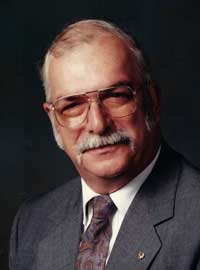 (Chelsea Update would like to thank Amy Heydlauff for the information in this column.)
(Chelsea Update would like to thank Amy Heydlauff for the information in this column.)
Lately you may be hearing about ‘functional fitness’. I asked Brett Pedersen, a certified group fitness instructor and weigh management specialist to help us understand what functional fitness is.
Functional fitness is an approach to exercise that translates directly to everyday life, recreational activities, and sport.
Exercises incorporate a large number of muscle groups. The emphasis is on using large movements and exercises rather than isolating muscle groups like many traditional workouts. Think broad jumps rather than bicep curls and monkey bars in place of bench presses.
Why is it different than a regular workout? What are the components of a workout?
Many participants describe functional fitness as more engaging and dynamic than traditional exercise. Workouts are designed to incorporate lots of movement and should be captivating to class members. I like to tell class participants that these workouts are designed to improve life experiences.
Regular participation in functional fitness can improve your prowess in a basketball game or allow you to hike longer on the Potawatomi trail. Members of my class should be better prepared physically to handle the challenges of a Zombie Apocalypse should we ever encounter one.
What is your favorite part of a functional fitness workout?
I love the practicality of functional fitness. It’s an extremely efficient way to exercise in regards to time. Bigger movements equate to more calories burned, elevated metabolism, and the translation into everyday life and sport is significant. I also like that workouts are perceived to go faster due to amusing activities and exercises that shun boredom and increase engagement.
What kind of health outcomes can a person expect from regular functional fitness workouts?
Regular participants of functional fitness workouts can expect increases in strength, endurance, balance, and coordination. As well as improvements in body composition and greater resistance to injury. Lastly, functional fitness incorporates a large number of muscle groups which in turn flood the body with endorphins and other feel good hormones post workout.
Is it harder than a regular workout?
Different instructors take different approaches to their expectations regarding intensity of a workout. Personally, I leave that up to the people taking the class. We are grown adults and I don’t feel it’s necessary for me to dictate how hard someone needs to work in a class (unless someone tells me they want me to motivate them and push them).
We have people that are training for Ironman Triathlons in our workout classes right next to 75-year-old seniors that want to improve their golf game. My workouts are designed for the most hardened of athletes to the person walking off the street that hasn’t exercised in a decade.
Good instructors can accommodate anyone that walks through the doors and meet everyone where they desire regarding intensity.
Who shouldn’t do functional fitness, if anyone?
Everyone should do functional exercises. More and more research continues to point that the isolation exercises of yesterday are not as effective as functional exercises. Functional fitness has been around since the days of Spartan warriors. It’s a way to better prepare your body for the activities you engage in on a regular basis in a controlled and safe environment.
Is there an entry level option for functional fitness for those who aren’t in very good shape right now?
I’ve been a part of the health and wellness field for 15 years and I believe that the most important aspect of any class and/or gym is creating an atmosphere of safety and acceptance.
I tell my classes that the exercises and modifications that I’m providing are purely recommendations and that they can do any exercise or modification that they desire in the workout (as long as it doesn’t interrupt other class members). All too often an instructor’s ego gets in the way of creating a space where all participants feel comfortable.
My recommendation to any and all people looking towards functional fitness is to join a class and work at the intensity level that they feel comfortable. There shouldn’t be a feeling of obligation to work at the same intensity as the class or instructor. If you don’t feel comfortable while in a class simply find a new one that fits better. Functional fitness is absolutely for everyone no matter your age or fitness level.
What should you wear for a functional fitness class and what shouldn’t you wear?
People should wear clothes that they feel comfortable moving and sweating in as well as a pair of soft soled shoes.
If you are interested in trying a functional fitness class there are Boot Camps, Special Needs Movement, Equestrian Pilates for youth and adults and Youth Strength and Agility classes open to the public at both Chelsea and Dexter Wellness Centers.
Other classes are available to members at all four of our wellness centers. Don’t forget the functional fitness class being held for free in Dexter’s Mill Park at 5:30 on Thursday evenings all summer long.
Have fun.


















